Andreas Schlüter (1942)
Genre : Drama
Runtime : 1H 51M
Director : Herbert Maisch
Synopsis
Historical drama portraying the life of German baroque architect Andreas Schlüter.
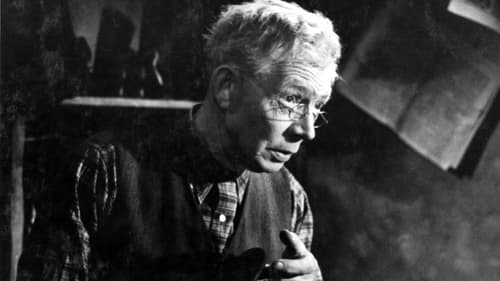
Hamburg, Germany 1934: An executioner is needed. Teetjen makes the biggest mistake of his life. Because his butcher shop is facing bankruptcy, he agrees to execute a group of political prisoners for the Nazis. Once this becomes known, Teetjen’s life falls apart.
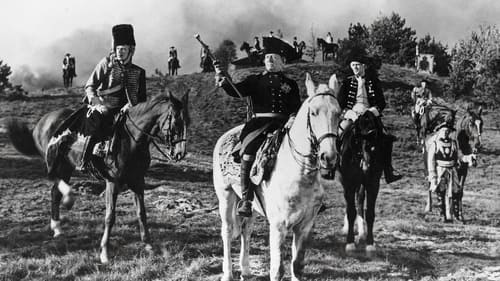
King Frederick II (aka "Frederick the Great") of Prussia is engaged in a major battle against the Austrian army at Kunersdorf, and things aren't going well. The Austrians are inflicting major casualties, and his army is beginning to crumble. Defeat seems inevitable when a combination of events gives him hope that he may pull victory from the jaws of defeat after all.

A reckless young woman has her driving license withdrawn, drives home anyway and gets involved in a traffic accident. Realizing this was a little over the top she decides that she has to flee the country. As fate has it, she misses her train and instead meets a handsom young man who imidiately falls in love with her. This marks the beginning of a long night of misunderstandings, chases and courting.
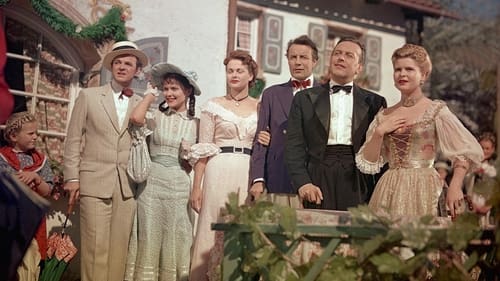
Head waiter Leopold has been secretly in love with the hostess Josepha for a long time, but she only has eyes for Dr. Siedler, a guest in the White Horse Inn. Leopold tries to get Dr. Siedler interested in the daughter of Industrialist Giesecke, who would rather see his daughter married to Sigismund.

Werner Dux, heir of the big car company "Dux-Werke", is a gambler who has just been arrested in Chicago for shooting a cardsharper. While in jail, he learns from his friend Michael Nissen that his father has died recently. That means that the Dux-Werke are without a leader at the moment, for Werner's cousin Steffie, who is his co-heiress, is still too young to run the firm. In this situation, Werner convinces his friend Michael, who is an engineer by profession, to take over the firm as long as he is in jail and to pose as him. Michael agrees and is able to bring the firm up again. He even arranges a reliability test for motorcycles via Istanbul, Rome and Barcelona, which creates a big Turkish order for the company. When the real Werner escapes from jail and arrives in Germany, it looks as if the whole story is up to bust. But Werner needs money, so he convinces Michael to go on as before and hand over all profits of the firm to him.

Was it an act of sabotage or willful negligence? The non-party engineer Heinz Solter is suddenly arrested and accused of approving a defective pipeline that caused a half million loss to his company. At first, the case seems clear-cut for the state prosecutor, but when he probes deeper, he discovers that Solter had acted against his better judgment due to the pressure from his career-driven and authoritarian boss.

The famous actor Ralf Horricht is a pain in his current director's butt while shooting a comedy about the army. So Horricht believes it a joke, when he receives an induction-order as reserve-officer... but the captain tries his best to make him realize this is no laughing matter.
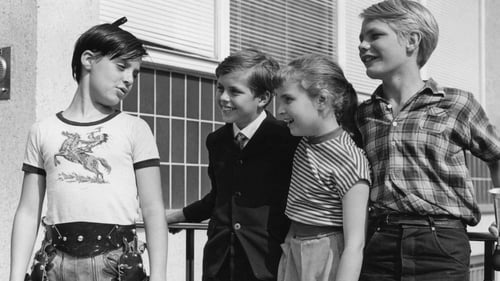
Emil goes to Berlin to see his grandmother with a large amount of money and is offered sweets by a strange man that make him sleep. He wakes up at his stop with no money. It is up to him and a group of children to save the day.

August 24, 1937: a day in the life of expressionist sculptor and author Ernst Barlach (Fred Düren). Barlach lives in the small town of Güstrow, keeping to himself and wanting to steer clear of politics. On this day he learns that the Nazis have dragged his famous 1927 sculpture The Hovering Angel out of the Güstrow Cathedral. Barlach begins to reflect on his life of “inner emigration” and on his work.

Berlin in the 1960s. Olaf and Horst are two young metalworkers, who provoke their older colleagues with critiques of the antiquated equipment and lack of materials... not to mention their love of leather jackets and motorbikes. Olaf and Horst begin to be targeted in the house newsletter, and the generational conflict escalates.

The young Schiller, whose heart and soul are writing and poetry, is forced into the military academy (the pride and joy of the Duke of Württemberg). Schiller is disgusted by the everyday routine of the military, always back and forth between breeding and drills. Conversation, conflict or even critique are discouraged – the oppression insufferable for the young rebel. Disgusted by the brutality, he writes his drama "The Bandit", which he would later publish anonymously. But following a frank conversation with the Duke, Schiller is dishonored and must leave the land.

Mid-1950s Berlin, before the building of the Wall. Uschi, a salesgirl and aspiring fashion model from the East, is attracted to Hans, from the West. But she also loves the bright shop windows in his part of the city. The flashiness of this new world soon evaporates, however, when Hans loses his job.

When 17-year-old Angelika moves to Leipzig, she is forced to rent a room at Mrs. Häublein’s for a start, since her parents will not follow until a few months later. Fellow tenant Thomas, a philosophy student, is not at all enthused about his new, pretty housemate. Because of Angelika he has to move into a smaller room. Furthermore, he is annoyed at her many male acquaintances, without sensing that his aggression might be prompted by jealousy. When Angelika’s father comes for a visit, he asks Thomas to keep an eye on his daughter. Thomas takes this assignment very seriously and finally realizes that he has fallen in love with Angelika.
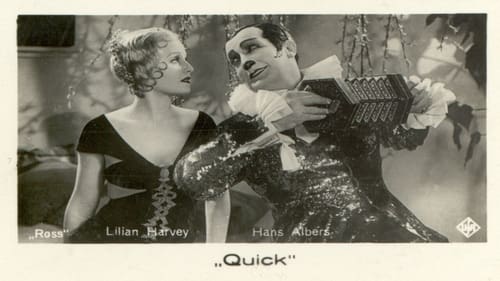
Lilian Harvey plays Eva, a young girl taking some time in a health spa and spending her evenings in the town's vaudeville theatre enamoured by a heavily made-up clown called Quick. Quick takes a shine to her and tries to woo her without make-up and masquerading as the theatre's manager. Unable to resolve her feelings for Quick and the theatre manager, Eva is angered when she finally learns that they are one and the same.

Max, a small time pick-pocket, has nothing to do with the ‘big’ crimes. But then he must find the murderer of Fred, his wife's brother.

Three people from very different walks of life meet at a large construction site. Young, unmarried, self-confident construction manager Linda Hinrichs dedicates herself completely to her work and enjoys living more independently then most women. Daniel, a student works on the construction site to make money during his summer holiday, and impresses Linda with his spontaneous energy and idealism. Brigadier Böwe, an older, divorced man works his way from one construction site to the other and has lost his own personal happiness on the path to developing what was seen as officially suitable social standards. Both men try to win Linda over, not realizing that they are taking her freedom away from her.















